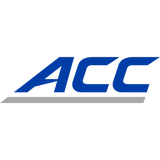
ACC players: Cost of attendance stipend helps in many ways
The cost of attendance stipend is quietly helping college players while the debate rages on whether they should be paid.
The modest stipend is a fraction of the millions college football generates, but is intended to provide players with money to buy an occasional pizza when university food service is not available or take in a movie. Some players use it to pay utility bills or help out family members, and there are coaches and administrators who feel it helps ward off the temptation to accept impressible benefits.
The money from universities, including Atlantic Coast Conference schools, varies based on how far from home the players play, the cost of living where they play and the status of their educational pursuits. How it is distributed also varies from school to school.
North Carolina State offensive lineman Garrett Bradbury receives $2,676 as in in-state player, $202 less than a player from out of state receives.
"I think it's phenomenal. I think it's tremendous. I think the interesting thing about a college football team is there are so many different guys from so many different situations and backgrounds," Bradbury said. "At one end of the spectrum, you have guys that might be financially OK from their home situation and they can put that money toward saving or buying little things that they need. Then there are some guys that might be sending home money for an electric bill."
The NCAA took a hard look at cost of attendance stipends in 2015 after Shabazz Napier of 2014 basketball national champion Connecticut made headlines. He complained that while the NCAA profits greatly from the NCAA Tournament, there were nights that he went to bed hungry because his basketball obligations, while profitable for the university, deprived him of access to meals.
Power Five conference schools adopted the idea first, and most Division I schools followed suit. The amount each player receives is based on federal guidelines.
It hasn't been in the news since, but Virginia coach Bronco Mendenhall said providing stipends to players was the right thing to do.
"One less thing that I have to worry about, meaning the players being stretched so thin that they're trying to find other employment in addition to school, in addition to football, but also just quality of life," he said. For players to have to worry about earning money on top of everything else they do "didn't make a lot of sense, so I think it's helpful. I think it's moral and I think it was necessary."
Schools hope it also makes seeking money from outside sources less likely.
"There's definitely a benefit in knowing that they have that money in hand to use for those expenses and don't have to look elsewhere," John Carns, Louisville's senior associate athletic director for compliance, said. "Maybe they don't have to work or get that part-time job because they've got this money to use for those expenses."
Most schools do more than simply hand over checks, offering financial responsibility sessions to help players. Some schools pay players monthly, others a few times a semester.
"No question it's helping," Clemson co-offensive coordinator Tony Elliott said. "A lot of people see these guys on Saturday and think they're gladiators, but they're still young people. We're talking about 18 to 22 year olds and they got a lot of things going on, so to have a little bit of extra cash to send some money home to your little brother or little sister, help your mama out. It just eases some of the pressure they've got on them and allows them to focus on being 18, enjoying college life and not have to be caught up in adult problems."
Like at Virginia, Clemson players get a check every month.
"They are really beneficial because we can do stuff outside of football, like take our minds away from football at times, go do activities like paintball or the movies," Tigers sophomore wide receiver Amari Rodgers said.
Or do simple, but necessary, things like buy food.
"Sundays you're on your own for food until Sunday night, so breakfast and lunch," Cavaliers linebacker Rob Snyder said. "If you don't have any money then you won't eat so it's very helpful with that."
Georgia Tech quarterback TaQuon Marshall has heard from former players who didn't get the stipend and appreciates not having to worry as much they did.
"Now that we have some spending money with cost of attendance," Marshall said, "it gives you the opportunity to have a little extra pocket change to maybe get those shoes that you want or maybe get those clothes that you want or maybe go out and have an outing with your boys if you want."
There were concerns the varied amounts of stipends could be used as a recruiting advantage, but that has proven unwarranted.
"I was one of the ones concerned just when you start comparing discrepancies," Mendenhall said. "Our check might be this, someone else's check might be that and all you can say is it's supposed to be equal based on the cost of living at that particular institution, that city. It's all supposed to be equal and that really has addressed it. I have never been asked the amount compared to someone else's, so what I was concerned about never came to fruition."
